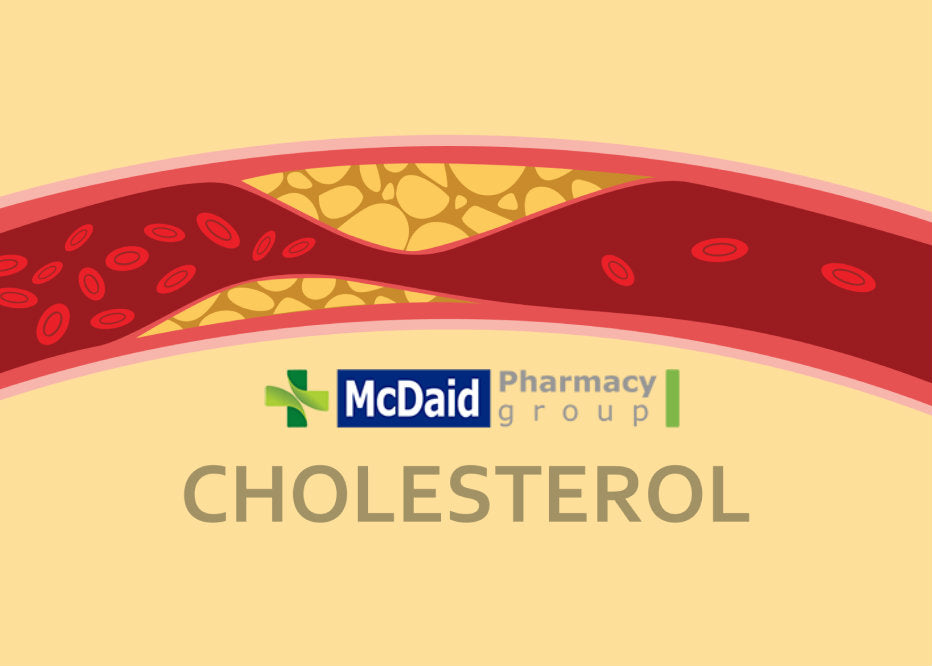What is cholesterol?
Cholesterol is a fatty substance found in your blood. It is produced naturally in the liver and is used by your body in the production of hormones and vitamin D as well as in the digestion of food. You also absorb cholesterol from some of the foods we eat such as meat, eggs and diary.
Cholesterol and Heart Disease
When there is too much cholesterol in your blood it can stick to blood vessels and build up forming plaques – a process known as atherosclerosis. This causes arteries to narrow, restricting or stopping bloodflow to the heart (may cause a heart attack) or to the brain (may cause a stroke).
Cholesterol is found in two main forms in your body:
- Low-density Lipoprotein (LDL) – also known as ‘bad’ cholesterol and is responsible for build up of plaques in arteries.
- High- density Lipoprotein (HDL) – also known as ‘good’ cholesterol as it removes LDL and carries it back to the liver to be processed.
Factors affecting cholesterol levels
Diet – foods high in saturated fats, trans fats and sugar increase LDL- cholesterol levels e.g butter, fatty meats, biscuits, cakes and processed foods etc. Eating less of these foods and more fruit and vegetables will help lower your LDL-cholesterol.
Exercise – regular exercise can also help lower your LDL-cholesterol levels while also increasing your ‘good’ HDL-cholesterol levels. At least 30 minutes of exercise 5 times per week is recommended.
Weight – being overweight may increase your cholesterol levels as well as increasing your risk of heart disease. Losing weight may help lower LDL-cholesterol while increasing HDL-cholesterol.
Genetics – your genes have a role to play in your cholesterol levels. High cholesterol levels may run in families also known as familial hypercholesterolemia.
Age – as we get older our cholesterol levels tend to increase, but young people may also experience high cholesterol and therefore a healthy diet and weight is important for all age groups.
Medication – some medications may increase cholesterol levels such as steroids and hormone therapy. Speak to your McDaids Pharmacist for more information on your medicines and cholesterol.
Medical conditions – certain medical conditions such as liver disease, kidney disease and underactive thyroid (hypothyroidism) may negatively affect cholesterol levels in your body.
Should I get my cholesterol levels tested?
There are no symptoms of high cholesterol so you may be unaware of having high levels – anyone can have their cholesterol levels tested. Speak to your McDaids pharmacist about the cholesterol testing service offered in-store. It is particularly important the following groups get tested:
- if you have had coronary heart disease or stroke
- family history of cardiovascular disease
- over 40s
- if a close family member has inherited high cholesterol
- overweight/obese
- high blood pressure, diabetes, kidney disease, liver disease or hypothyroidism
Speak to your McDaids Pharmacist today for further information about cholesterol levels and hearth health including cholesterol testing and supplements which may be beneficial for your cholesterol levels.


